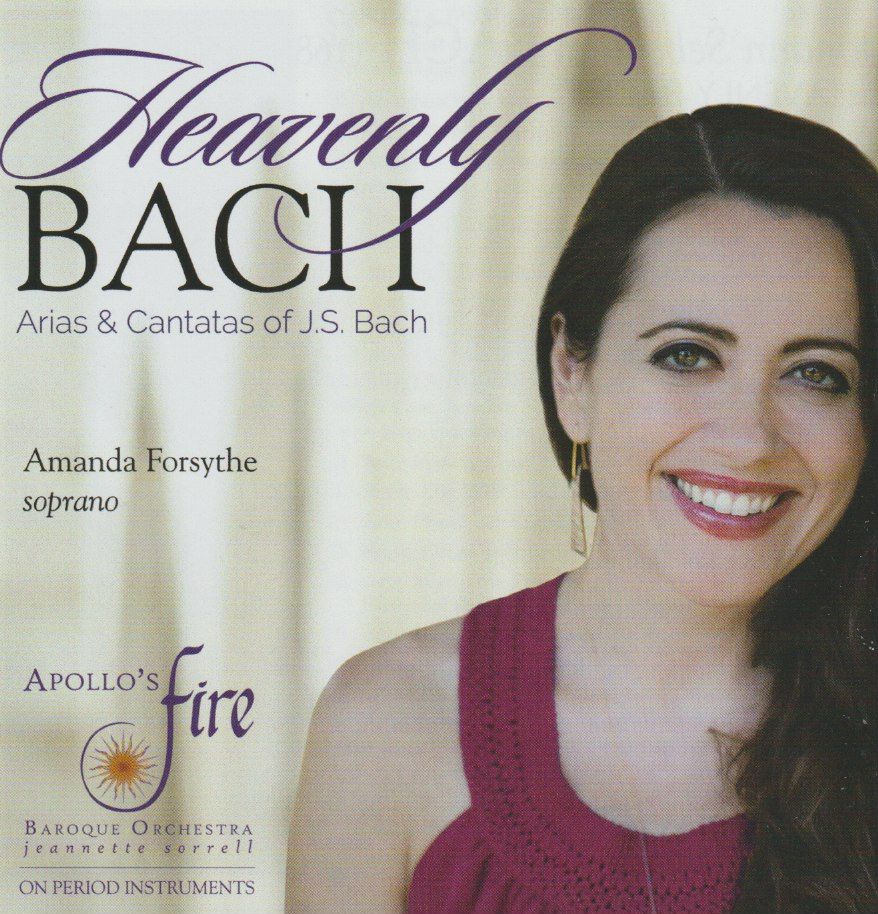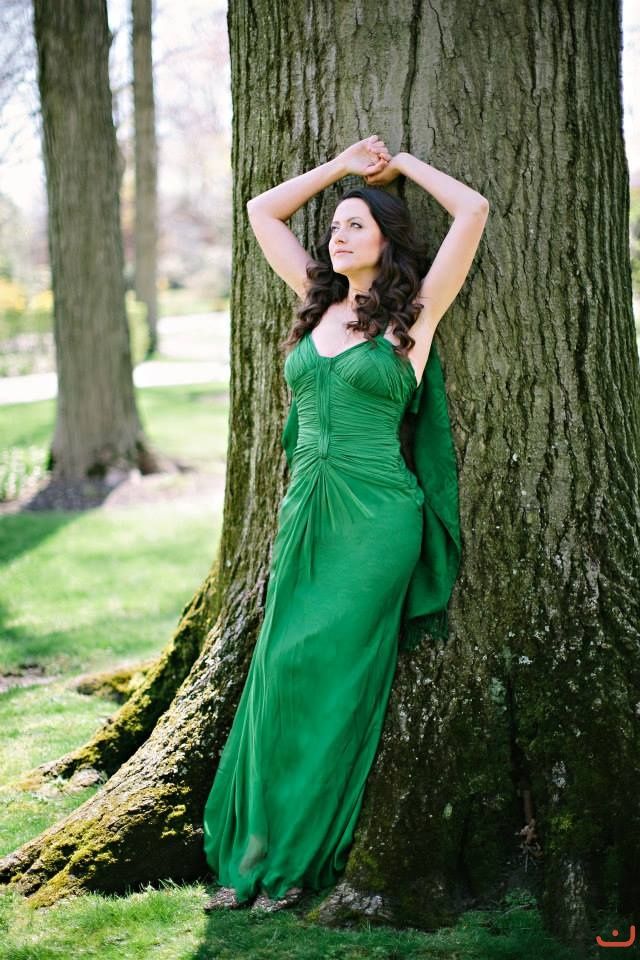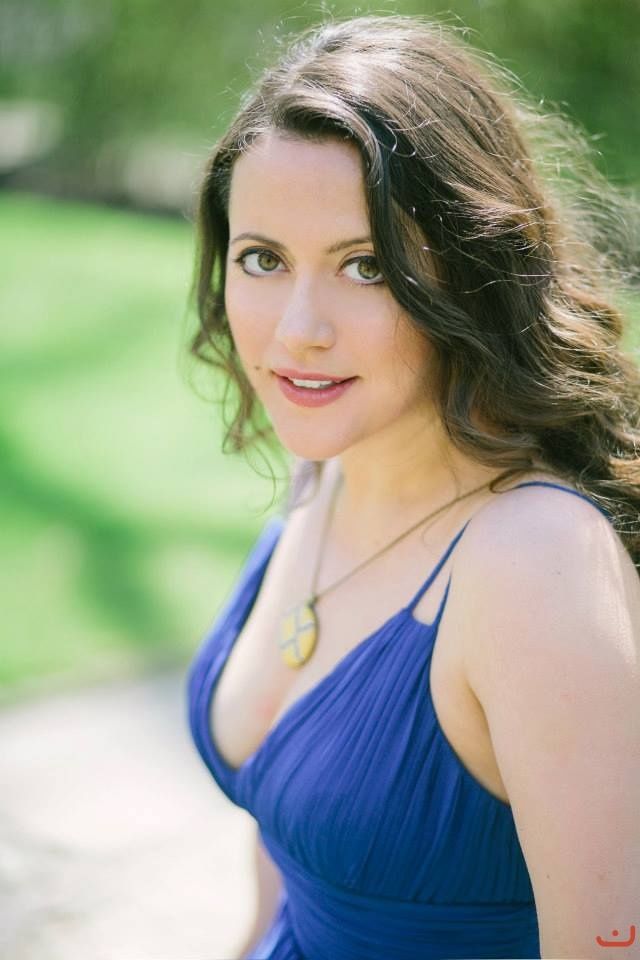Heavenly Bach from Amanda Forsythe and Apollo’s Fire
A stunning album - beautifully proportioned and utterly delightful

This is a celebration of Bach’s love affair with the soprano voice; his wife, Anna Magdalena Bach, was of this voice range. The sheer jubilation of the opening of the Cantata BWV 51, Jauchzet Gott in allen Landen (Priase God in every land) is palpable. Amada Forsythe has a tremendously nimble voice (which is just what Bach asks for here), and the obbligato trumpet part is expertly delivered by Steven Marquardt:
Composed during his first decade at Leipzig, BWV 51 comes only a few ywars at the the St John Passion. That bright opening is balanced by the incredibly interior aria, “Höchster, mache deine Güte,” in which Bach minimises the accompaniment to continuo only, something that only increases the sense of focus:
While Forsythe’s agility suited the first movement to a tee, it is notable that she is able to penetrate to the depths of this remarkable movement, too, Stripped of full orchestral forces, everything is laid bare in that remarkable aria. The presentation of the chorale, too, is remarkable: the solo soprano has the chorale melody (“Sei lob und Preis mit Ehren”; May there be Praise and Glory and Honour) against a very active orchestra; leading to a repsie fo teh energy of the first movement in the concluding “Alleluia,” thus allowing for a rather nice sense of symmetry:

The first of two arias from the Johannes-Passion (St John Passion), BWV 245, punctuates the two cantatas here; timely as we approach Easter, of course. Back in 2020, Classical Explorer reported on Masaaki Suzuki’s then-new St John on BIS, and if a complete version is in order, that is the one to head for. But Forsythe offers a fine account of the remarkable aria, “Zerfließe, ein Herze” (Melt, my heart, in floods of tears), the soprano’s reaction tot he deaty of the Christ, the tears reflected in the subbing gestures. A mournful oboe da caccia is the obbligato ibstrument:
Linking a wedding to the arrival of Spring, the Cantata BWV 202, Weichet nur, berübte Schatten (indeed, the so-called Wedding Cantata: “Retreat, gloomy shadows“) is a remarkable work. We do not know whether this was written for Bach’s own wedding, but it is a work of utmost beauty. The utterly poignant opening aria with oboe obbligato (Debra Nagy) is a thing of great beauty, with a middle section describing the attraction of Flore (the Roman Goddess of flowers):
The sense of motion in the aria “Phoebus eilt mit schnelles Pferden” (Phoebus hastens with swift horses) is again soprano and continuo only, the accopaniment’s angular shapes positively galloping, while the soprano line returns us to the virtuosity of the opening movement of BWV 51:
Forsythe’s strength is to be able to convey the sheer joy of Bach’s music and then, scant minutes later, enter into the most remarkable interior spaces. She does it again in BWV 202, in the central aria with violin obbligato (the excellent Olivier Brault, whose phrasing is so unutterably tender here). Here it is, “Wenn die Frühlingslüfte streichen” (When the Spring breezes stroke):
Fascinatig how this cantata ends with a Gavotte, a dance form, in the aria “Sehen in Zufriedenheit” (May you see in contentmen / A thousand days of well-being). It really is a beautiful movement, and Apollo’s Fire capture the grace of the music to perfection:

Finally, another aria from the St John Passion, this time “Ich folge dir gleichfalls” (I follow Thee also with joyful footsteps), with a pair of flutes reflecting how Simon and Peter followed Jesus with fathful footsteps. It is the perfect close, and Forsythe imbues Bach’s lines with a real sense of grace.
Throughout, Apollo’s Fire never setS a foot wrong. A stunning album - slightly short measure at 50 minutes, perhaps, but beautifully proportioned and programmed, and utterly delightful.
You can hear the entire album here:
... and you can buy it here:
